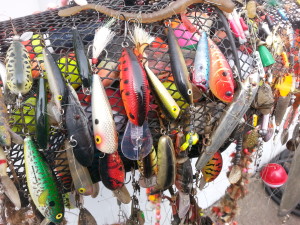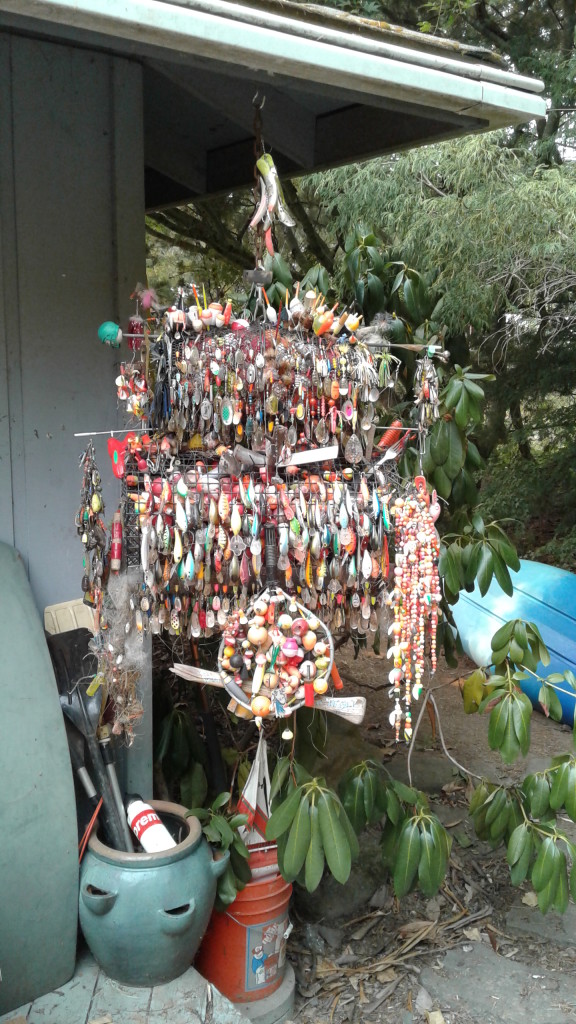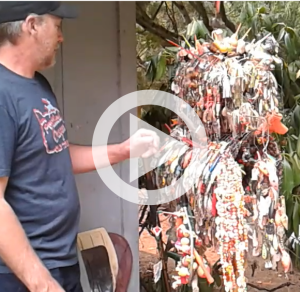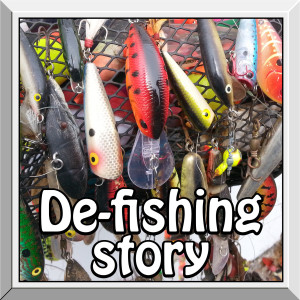 “My Dad always loved the outdoors and just hated seeing the trash left behind by thoughtless people. He taught me to always leave the environment better than I found it. Always.” That lesson has stayed with James Magmer, our longest-term Technician, throughout his life. It’s made him one of those folks who always comes back from a camping trip with bags of other people’s trash. Maybe that’s not so unusual in Oregon, but a couple years ago something happened that made James look at trash in a unique way. And his epiphany started with… a duck.
“My Dad always loved the outdoors and just hated seeing the trash left behind by thoughtless people. He taught me to always leave the environment better than I found it. Always.” That lesson has stayed with James Magmer, our longest-term Technician, throughout his life. It’s made him one of those folks who always comes back from a camping trip with bags of other people’s trash. Maybe that’s not so unusual in Oregon, but a couple years ago something happened that made James look at trash in a unique way. And his epiphany started with… a duck.
 “I was on the river in my kayak when I saw this duck sitting on the water. She didn’t move as I paddled up to her and it was easy to see why… she had a fishing hook stuck through her wing and was trailing a bobber, lead weights, and about 30 yards of fishing line.” A duck that can’t fly faces two possibilities, slow starvation or dinner for another animal, and neither sat well with James. “As slowly as I could I pulled her in by the tangled lines. The poor thing was terrified but when I put her into the kayak she calmed down like she knew what I was going to do.” James pulled out his tools and got to work clipping the hook and carefully passing it through the duck’s wing. “When I was done, when she was free, she jumped off into the water and swam alongside me for a while as I paddled away. She wasn’t scared at all anymore and actually seemed grateful, for a duck. But then I looked at the wad of lines and barbs in my boat and I thought about how common, and how dangerous, trash like this was.”
“I was on the river in my kayak when I saw this duck sitting on the water. She didn’t move as I paddled up to her and it was easy to see why… she had a fishing hook stuck through her wing and was trailing a bobber, lead weights, and about 30 yards of fishing line.” A duck that can’t fly faces two possibilities, slow starvation or dinner for another animal, and neither sat well with James. “As slowly as I could I pulled her in by the tangled lines. The poor thing was terrified but when I put her into the kayak she calmed down like she knew what I was going to do.” James pulled out his tools and got to work clipping the hook and carefully passing it through the duck’s wing. “When I was done, when she was free, she jumped off into the water and swam alongside me for a while as I paddled away. She wasn’t scared at all anymore and actually seemed grateful, for a duck. But then I looked at the wad of lines and barbs in my boat and I thought about how common, and how dangerous, trash like this was.”
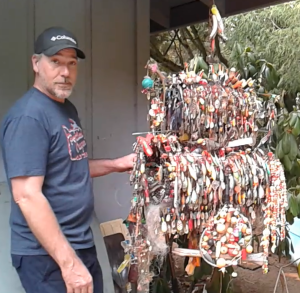
James Magmer displays his trashfishing collection
That was almost four years ago, and now collecting “fishing trash” from our rivers is one of James’ favorite hobbies (and he has many). “I call it trash fishing. It’s a lot of fun, but the best part is being out by myself, on the water, in the quiet, where no one can bother me. It’s a great way to get out and get some thinking done.” He draws some attention while on the water, though. “People always come up and ask what I’m doing. When I tell them the response is always ‘what a great idea!’” Sometimes even the water doesn’t offer the solitude he’s looking for. “Once I was pulling a lure from a tree while a guy was fishing on the bank. When I paddled onto shore we started talking, and it turned out that he had lost that particular lure himself. He said he never expected to develop a
sentimental attachment to a fishing hook, but he’d had that lure for years and was even able to identify the brand. I gave it to him, and he was so pleased he took a video of me with the lure and told everyone on Facebook about the guy in Oregon returning lures!”
Like any hobby, James started out rough and worked his way up. “When I started I had a 9’ bamboo pole with a piece of wire on it that I could use to snag fishing line from trees. I added a scrub pad that made getting fishhooks easy, and then added another 9’ to the pole to get the higher stuff.” That gets a lot of things out of the brush, but it misses a lot more elsewhere. “I made a special gadget for things wedged around rocks underwater. It’s a rope with a plumber’s chain at the end that spreads out as it sinks and catches into the line and tackle.” James’ arsenal for trashfishing now includes 2 kayaks for different conditions, a dry suit, a 24’ pole, grabbers, a butterfly net, and much, much more.
That explains the fishing and environmentalism, but what about the art we mentioned? Well, what would you do with piles of old fishing lures? James makes art out of it. “The lead goes in a bucket, the line goes in another bucket, but I use the lures. I started with a crawdad trap I’d found and used it as a base to display them. I just kept adding the treasure from each trip, one by one, to create a mobile. Now it takes up two crawdad traps and weighs about 80 pounds. It makes a beautiful tinkling sound in the wind though, and now my wind chime is bigger than most people’s tackle box!” Words don’t do this sculpture justice, so here’s a couple pictures and a :20 video showing the whole thing…
What’s next for the creator of trashfishing? “Pretty much more of the same. Now that the water is a little lower I get bigger hauls so I’m excited about that. I get out about every weekend I can, cold or hot, and I’ll keep doing it. People have suggested I get grants, or get the ODFW to pay me somehow, or other ways to do it bigger but I’m not really interested. I just want to get out and relax, and this is a great way to make it happen while I do a little good at the same time.”
On behalf of every fisherman who’s ever lost a lure, and especially on behalf of that long-ago duck, thanks James!

